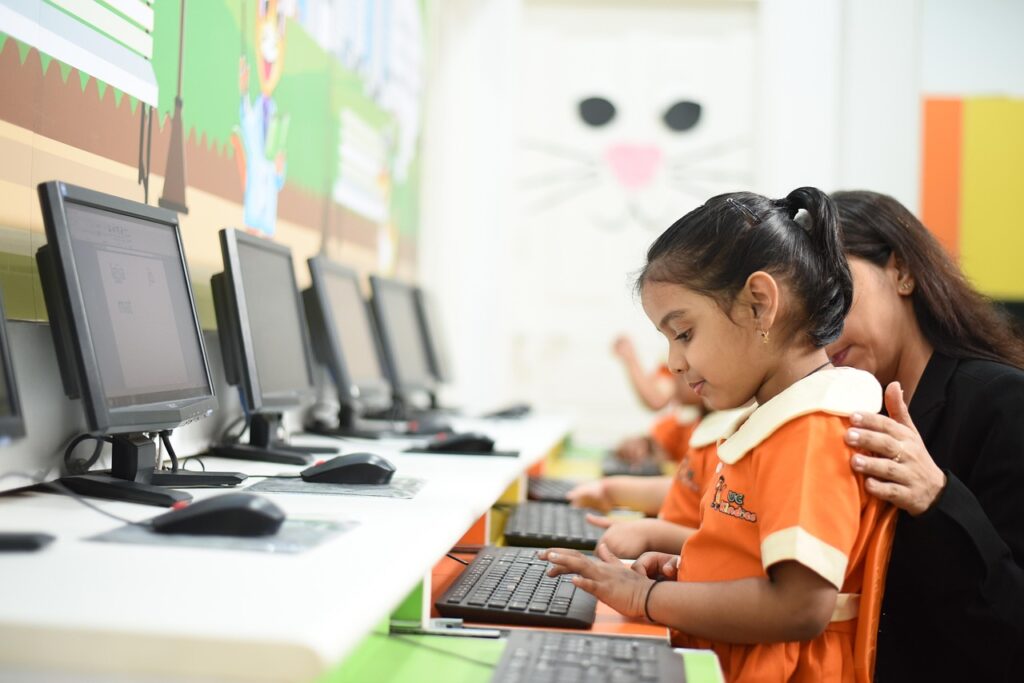Choosing the top 10 preschool is crucial for a child’s early development and foundation. Many parents in India look for institutions that offer quality education, a safe environment, and holistic growth opportunities for their little ones.
The top 10 preschool in India stand out for their curriculum, experienced faculty, infrastructure, and focus on overall child development. These schools combine modern teaching methods with play-based learning to prepare children for future academic success.
Understanding which preschools provide the best start can simplify decisions for parents seeking reliable and effective early education. The list highlights institutions across India known for meeting these essential criteria.
Top 10 Preschool in India
This section outlines the key factors used to evaluate preschools, presents a list of the top ten preschools across India, and highlights their distinctive qualities. It aims to provide clear, practical information to help parents make informed decisions.
Selection Criteria
The preschools were selected based on curriculum quality, teacher qualifications, infrastructure, safety measures, and student-teacher ratio. Emphasis was placed on child-centric pedagogy and nurturing environments.
Additional factors include parental reviews, extracurricular activities, and emphasis on developmental milestones. Location and accessibility also influenced the ranking. A combination of national reputation and localized feedback formed the basis for final selection.
Academic approach ranged from Montessori and play-way methods to integrated modern techniques. Safety protocols were verified through both inspection reports and parent testimonials. The evaluation process focused on consistent quality and growth opportunities for children.
List of Preschools
| Rank | Preschool Name | Location | Curriculum |
| 1 | EuroKids | Multiple cities | Play-way |
| 2 | Little Millennium | Multiple cities | Theme-based |
| 3 | Kangaroo Kids | Multiple cities | Integrated |
| 4 | The Shri Ram Early Years | Delhi | Play-way |
| 5 | Bachpan | Multiple cities | Play-based |
| 6 | Podar Jumbo Kids | Mumbai | Montessori |
| 7 | KLAY | Multiple cities | Play-way |
| 8 | Brainy Bear | Mumbai | Play and learn |
| 9 | Shemrock | Multiple cities | Play-way |
| 10 | Apple Kids | Multiple cities | Activity-based |
These preschools have a strong presence nationally or in major metropolitan areas. Variety in curriculum offers options suiting diverse preferences and educational philosophies.
Unique Features and Highlights
EuroKids is notable for its standardized curriculum and extensive franchise network. Little Millennium incorporates theme-based learning and technology integration. Kangaroo Kids emphasizes emotional and social development alongside academics.
The Shri Ram Early Years focus on experiential learning with a global outlook. Bachpan offers flexible timings and localized content delivery. Podar Jumbo Kids applies Montessori principles with modern tools.
KLAY promotes inquiry-based learning with well-trained staff. Brainy Bear utilizes bilingual teaching methods in Mumbai. Shemrock highlights safety and infrastructure, while Apple Kids encourages arts and physical development.
Each school balances academics with creative and physical activities suited to early childhood growth.
Comparing Leading Preschools
Preschools in India differ significantly in their teaching methods, staff qualifications, and parent satisfaction. These factors influence the overall quality and suitability for children’s early education.
Curriculum Approaches
Top Indian preschools adopt diverse curriculums such as Montessori, play-way, and thematic learning. Montessori focuses on self-directed activity and hands-on learning. Play-way encourages creativity and social skills through games and activities. Some schools use an integrated curriculum combining multiple methods to cater to different learning styles.
Most leading institutions balance academics with activities promoting emotional and physical development. Languages, art, music, and outdoor play are common components. The curriculum’s flexibility to adapt to individual child needs often distinguishes higher-rated preschools from the rest.
Teaching Staff Qualifications
Preschools with well-trained teachers often follow early childhood education (ECE) certification standards. Many require degrees or diplomas in preschool education or child development. Experienced staff better understand child psychology, classroom management, and developmental milestones.
Regular teacher training workshops on modern pedagogy and safety practices are typical in top schools. High staff-to-child ratios ensure personalized attention. Schools that invest in continuous professional development tend to have higher teaching quality and better learning environments.
Parent Reviews and Feedback
Parent feedback highlights staff responsiveness, communication, and child progress transparency. Leading preschools maintain open communication channels through meetings, digital reports, and parent-teacher apps. Parents appreciate timely updates on their child’s activities and developmental growth.
Safety and hygiene practices also recur in reviews as major concerns. Positive reviews often mention empathetic teachers and inclusive classroom atmospheres. Lower rated schools may have complaints about inconsistent discipline or lack of engagement. Overall parent satisfaction is a strong quality indicator for preschool choice.
